The most poignant comment I’ve seen about the president’s groin-punch to the U.S. economy came from his secretary of state. During a visit to NATO headquarters in Brussels on Friday, Marco Rubio told reporters, “We’re not the government of the world now.”
He said it triumphantly, I assume, which is part of what makes it poignant. In an alternate universe where ambition hasn’t rotted his brain, Sen. Marco Rubio is saying the same thing today, verbatim, about the first two-and-a-half months of Donald Trump’s second presidency. But his tone is entirely different.
Being the government of the world worked out okay for America, not to mention the world. Rubio circa 2016 would have been eloquent on that point. But he chose instead to be a cymbal-banging monkey for Trump, so now he’s required to say inane things about the nationalist virtues of immense wealth destruction.
Still, he’s right: We’re not the government of the world anymore. Which is also poignant if you’re a child of the Cold War like I am.
Before January 20, even a Trump doomsayer like me would have doubted that the president could do so much damage as to end the unipolar global order in 75 days, but he’s done it. America is considerably weaker economically and diplomatically than it was as recently as three months ago, and entirely by design. No crisis has been foisted on Trump in that period to make diminution inevitable, either. He’s chosen it freely, one needless groin-punch after another.
It’s indistinguishable from sabotage.
Comparisons have already begun between Trump’s trade war and George W. Bush’s Iraq war, which is unfair to both men. Trump’s war won’t have a body count (not directly, anyway) while Bush’s war wasn’t as comprehensively strategically indefensible. But the similarities are obvious: In each case, a Republican president gambled his party’s and his country’s credibility on a dubious ideological hobby horse that portended enormous human misery. It didn’t work out great for Bush’s GOP. Stay tuned.
The analogy got me thinking, though. Are there any silver linings to the dumbest trade war in history? There aren’t many from the Iraq war, but you can find a few if you look. Iraq’s new democracy has endured. Saddam Hussein and his lunatic sons were liquidated, sparing the world from whatever future calamities they would have instigated. And Americans learned a painful lesson about the limits of military power that may have averted other, even more painful U.S. misadventures abroad.
There must likewise be some upsides to Trump lighting American preeminence and millions of retirement accounts on fire, no? And indeed, there are.
Backlash upon backlash.
One silver lining is that public support for free trade will grow.
It happened during Trump’s first term. When he was elected in 2016, 58 percent of Americans told Gallup that they viewed foreign trade as an opportunity for economic growth versus 34 percent who regarded it as a threat to the U.S. economy. Within a year, that split had widened to 72-23. In 2020, it reached 79-18, the largest gap Gallup had recorded to that point in nearly 30 years of asking. Nothing made voters more enthusiastic about cheap foreign goods, it seems, than having to live with a president who wanted to make them more expensive.
Last month, with Trump back in office, Gallup asked the question again and found 81 percent of respondents in favor of free trade, a jump of 20 points since 2024 and another new record. In other words, a sharp backlash to the new president’s policies was in motion even before “Liberation Day.” Imagine what the numbers will look like the next time Gallup asks, now that Americans have experienced Trump juche in full flower.
Views of free trade tend to wax and wane depending on which party is in office, but the shock of this fiasco might put voters off of protectionism durably, the same way Iraq has with respect to major Middle Eastern wars. And that might come in handy as the damage from Trump’s presidency inevitably radicalizes some liberals: A Democrat elected on a wave of left-wing populism who’s tempted to experiment with juche himself will look long and hard at those Gallup numbers before doing so.
Another silver lining is that Congress might be moved to start reclaiming some of its powers from Trump.
Might. Don’t get your hopes up. The smart money says it won’t happen unless Democrats regain control next year. If things get so bad before then that even gutless congressional Republicans feel pressured to act, it will only be because they’ve exhausted every excuse to avoid doing so. From Politico:
“I think most members on our side are very willing to give the president time,” Arkansas Sen. John Boozman said, summing up the view of many GOP lawmakers who might have qualms about Trump’s massive new levies but showed little interest—at least for now and the near future—in doing anything concrete to restrain him.
…
One senior Republican aide, granted anonymity to describe the dynamics inside the party, said GOP lawmakers were prepared to give Trump “several months” at the very least. “Everyone is terrified,” the aide said. “But I don’t think anyone wants to cross the president right now.”
Forced to choose between your financial security and their electoral security, the right’s quisling leadership class will choose itself every time—for now. But there is, in theory, a point at which the two interests might align. If the economy topples into recession and Trump’s approval rating crashes into the low 30s, with his “soft” supporters abandoning him en masse, running as an anti-tariff conservative in a GOP primary might become marginally less risky than running as an anti-anti-tariff Trumpist in a general election.
But even then, I admit, it’s hard to imagine Republicans mustering the dignity to pass legislation ending Trump’s abuse of his tariff powers. The most we can realistically hope for from them is convincing him to lift the tariffs of his own accord before the midterms. “Would you rather do it yourself, Mr. President, or would you prefer to have the new House and Senate Democratic majorities do it for you?”
American decline.
A third silver lining of the new trade war isn’t so lustrous. Wednesday was the final proof, if more was needed, that Americans are no longer fit to lead the free world.
The greatest threat to liberalism is Chinese totalitarianism; containing and defeating it is the foreign policy challenge of the century for Western nations. There is no way around the fact that a people capable of electing Donald Trump twice, once after he attempted a coup, are not up to that challenge intellectually, civically, or morally. “The American age is over,” Jonathan Last argued on Thursday. “And it ended because the American people were no longer worthy of it.”
That’s correct. There’s too much rot in the American character to believe that our country can sustain the will, clarity, or cunning to defeat an enemy as formidable as modern China. On the contrary, from threatening near-abroad satellites like Greenland to pointlessly offending allies like Canada to declaring a global trade war that will isolate the United States, Trump in his first 75 days has done more to strengthen Beijing than any president in decades.
Moronic, groin-punching American authoritarianism will not solve Chinese totalitarianism. The silver lining of “Liberation Day” is that the whole world understands that now and can proceed accordingly. If the West is to avoid eastern hegemony, Europe will need to take the lead—the sooner, the better. Frankly, the way things are going, there’s a nonzero chance that the United States will eventually end up on the other side.
But if that’s too glum, here’s another silver lining to cheer you up. Watching MAGA diehards spitball theories to explain why an economic meltdown is Ackshually Good will be hilarious for us all, providing welcome entertainment in the grim months and years to come.
In fact, it’s already begun. Much of the initial cope over the last 48 hours has unwittingly replicated Biden-era Democratic excuses for inflation. Remember how that was supposed to be “transitory” but wasn’t? No worries—the Trump crash is transitory too.
Some of it has a distinct Soviet aroma to it: Do you need a new iPhone, comrade, or do you merely want one? (Columnist Josh Barro compared that logic to progressives urging people to eat bugs instead of meat because of the lower carbon emissions involved.) The MAGA right, so indignant last year about the cost of living, will learn to embrace life without luxuries—or even money itself—and to appreciate the government’s role in limiting individual consumption choices for the greater good.
Some true believers have reached for tortured metaphors, like equating tariffs with “chemotherapy” for America’s debt. It’s unclear how effective the medicine will be, especially in light of what’s afoot in Congress, but it’s in sync with the GOP’s broader message that before the richest country in history can “get well” economically, it first needs to get very, very sick.
Some populists prefer less complicated justifications, though. “Everyone I know who's been wrong about literally everything for the last 10 years is SUPER pissed about” tariffs, one person said on Twitter, “so the ‘inverse retard’ indicator says it’s probably fine.” That captures the spirit of MAGA better than anything I’ve written: If the experts say “X,” surely the optimal move is “not X.” Enough so that we should gamble the U.S. economy on it.
As for Trump, his own rationales are as messy and incoherent as you’d expect. “MY POLICIES WILL NEVER CHANGE,” he declared on Truth Social, signaling to businesses that they should go ahead and recalculate their financial plans based on the new tariff regime. But he contradicted that yesterday, hinting that that regime might suddenly shift: “Every country is calling us. … The tariffs give us great power to negotiate. They always have.”
Then, on Friday morning, he republished a post from a Twitter user speculating that he’s crashing the stock market on purpose as part of a brilliant five-dimensional-chess scheme to force the Federal Reserve to slash interest rates. Never did I dream I’d see a president take credit for making voters poorer—see why I said this all appears indistinguishable from sabotage?—but we live in an age of wonders. And in an age of wonders, the desperation of cope is wondrous too.
The American age is over because the American people are no longer worthy of it. The worse this gets and the more pathetic the face-saving logic by Trump fanatics becomes, the clearer that’ll be.
Squandered capital.
The most important silver lining of Trump’s trade war, though, is the timing. If you prefer the traditional constitutional order to whatever the hell the president and his cronies are cooking up, you should feel fortunate that he embarked on this folly sooner rather than later.
I agree with Jonathan Chait, who celebrated “Liberation Day” at The Atlantic by looking on the civic bright side:
Public-opinion polling on Trump’s economic management, which has always been the floor that has held him up in the face of widespread public dislike for his character, has tumbled. This has happened without Americans feeling the full effects of his trade war. Once they start experiencing widespread higher prices and slower growth, the bottom could fall out.
…
As the political scientists Steven Levitsky and Lucan Way point out, “Authoritarian leaders do the most damage when they enjoy broad public support.” Dictators such as Vladimir Putin and Hugo Chávez have shown that power grabs are easier to pull off when the public is behind your agenda. Trump’s support, however, is already teetering. The more unpopular he becomes, the less his allies and his targets believe he will keep his boot on the opposition’s neck forever, and the less likely they will be to comply with his demands.
At some point, Trump is going to defy a court ruling, snatch more power away from Congress on “emergency” pretenses, and/or do something nutty domestically with the military. When he does, it would be ideal if his political support is already in the toilet. Judges, legislators, business interests, and his own deputies are more likely to confront him when resistance doesn’t seem as futile as it does now.
Presidents take office enjoying the benefit of the doubt from voters. Joe Biden was given the benefit of the doubt that he, an old Washington hand, would restore competence and normalcy to government in the post-Trump era. That changed when Afghanistan went sideways and prices began to climb, and it never changed back. His job approval was net negative for the rest of his term. Having once been lost, the benefit of the doubt is all but impossible to regain.
As Chait says, the benefit of the doubt Trump received from voters last fall was keyed to his economic record. Americans will accept a higher-than-usual risk of a coup in exchange for what they believe to be a higher-than-usual probability of job creation. Watching him turn around and detonate the global economy, and in truly the stupidest way possible, will shatter that benefit of the doubt for all but his most cultish supporters. There’s literally nothing he could do to more efficiently squander the source of his political capital.
I’m not sure that even George W. Bush owned the Iraq war as totally as Trump will own the recession that likely ensues from this trade debacle. Bush had congressional and public support for the invasion, a meaningful degree of strategic support from experts, and appeared less ideologically invested in the cause than some of his deputies, like Dick Cheney. Trump, on the other hand, has been plotting his trade war for literally decades. He ran on it, test-drove it during his first term, seems at least as eager as his aides to “go big” on it, and is flouting a near-universal expert consensus by pressing ahead with it.
He owns it completely. If it bombs, there’s nowhere for him and the GOP to hide and no reason for voters to trust his judgment on anything again. (Not that there ever was, but many do.) When he makes his move against the Supreme Court or Greenland or NATO or whoever, a public that’s ceased giving him the benefit of the doubt about his supposed core competency will view his conduct differently than it would have if the S&P 500 were still cruising along at altitude.
Simply put, “Liberation Day” has made his authoritarian schemes less likely to succeed. Cheers to that! But—and with pessimists, there’s always a “but”—it might also have made them more dangerous.
Authoritarians love chaos because chaos gives them an excuse to exercise authority. It’s no coincidence that Trump’s most aggressive power grabs have had to do with phony emergencies. He used the Alien Enemies Act to suspend due process for accused immigrant gang members on the dubious theory that they’re part of an “invasion” force acting at the behest of the Venezuelan government. And he justified using his tariff powers to wreck global markets this week by pretending that trade deficits are, by definition, a national emergency requiring urgent action by the president.
The worse the economy gets, the more civil unrest there’ll be, and the more civil unrest there is, the more license Trump will claim to “restore order.” The fact that he himself will have caused the economic chaos that led to the unrest won’t matter. Like any authoritarian, he’s perfectly willing to make trouble for the sake of giving himself a pretext to crack down on the reaction in hair-raising ways. Postliberalism is a self-perpetuating chaos machine.
I mean, how do megalomaniacs typically behave when their grand vision of the world meets reality and begins to crumble? Do they humbly admit error and change course? Or do they return to their core conviction that success in any endeavor is achievable with sufficient ruthlessness and act accordingly?
As his popularity tanks, then, Trump might be less likely to become an autocrat “legitimately” yet more likely to become one illegitimately. Or to try, anyway.
But that’s something to worry about on another day. This weekend should be spent celebrating the achievements of the Trump administration and the wisdom of the voters who made it possible. “Democracy is the theory that the common people know what they want and deserve to get it good and hard,” H.L. Mencken wrote. Cheers to that too as recession beckons.
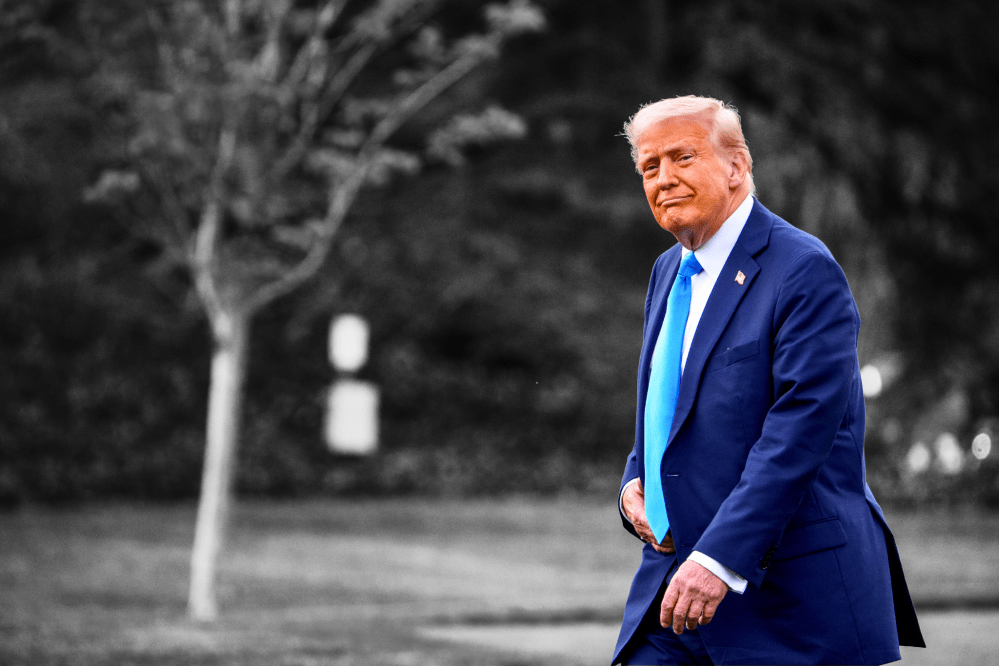

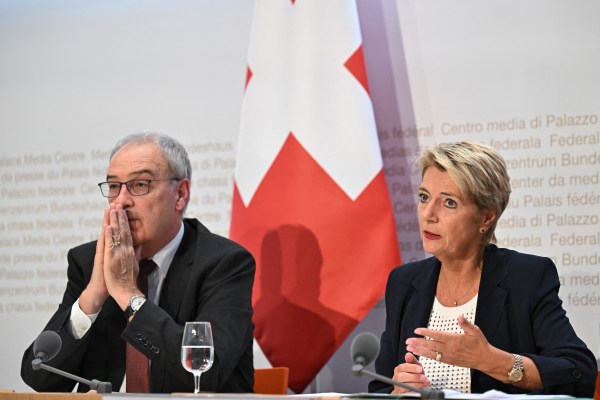
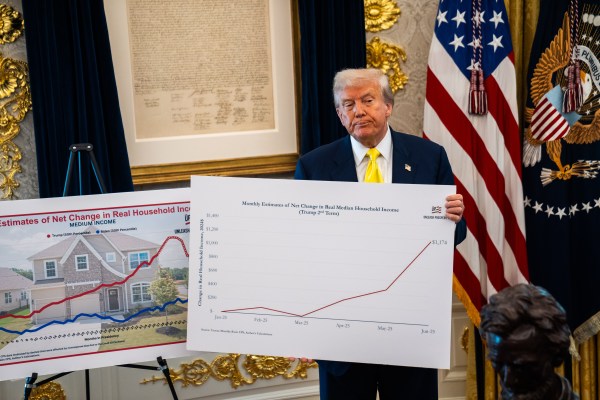
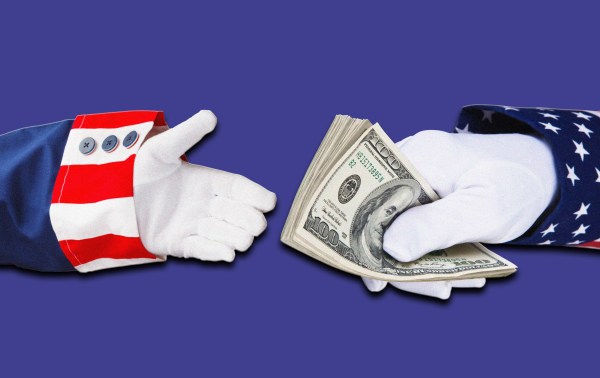
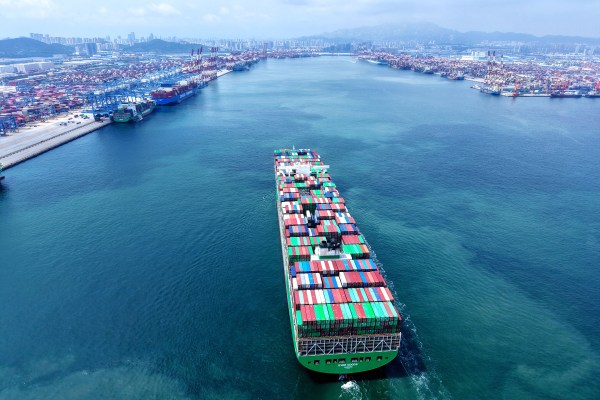
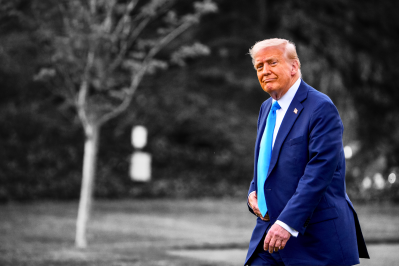
Please note that we at The Dispatch hold ourselves, our work, and our commenters to a higher standard than other places on the internet. We welcome comments that foster genuine debate or discussion—including comments critical of us or our work—but responses that include ad hominem attacks on fellow Dispatch members or are intended to stoke fear and anger may be moderated.
With your membership, you only have the ability to comment on The Morning Dispatch articles. Consider upgrading to join the conversation everywhere.